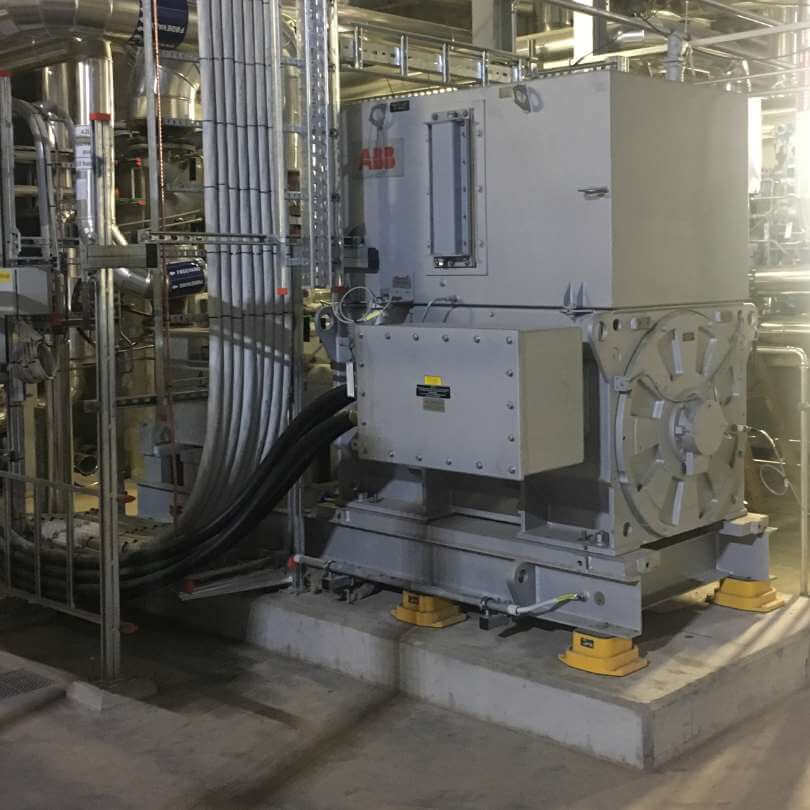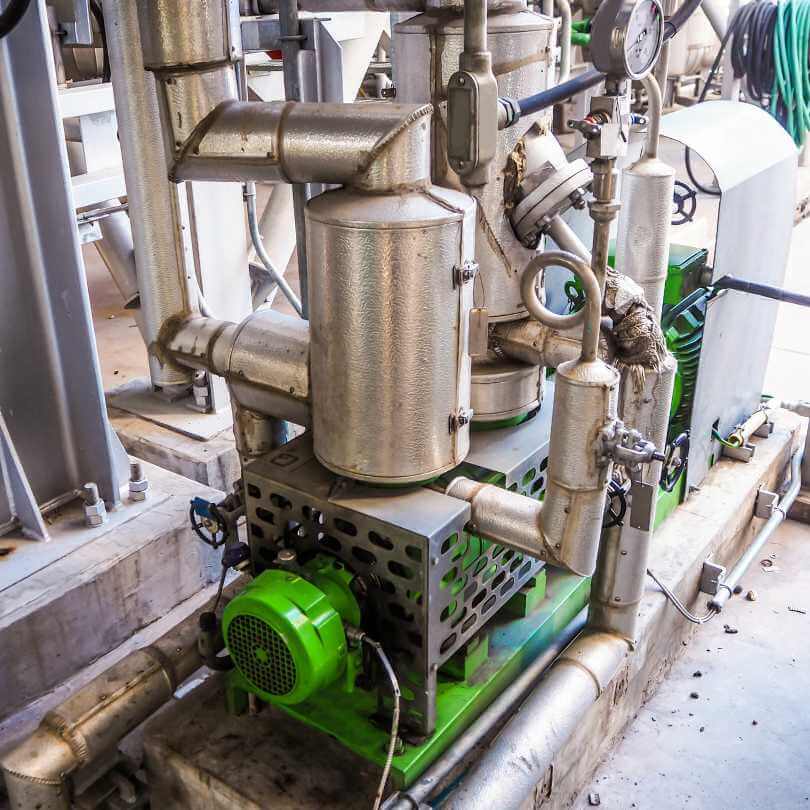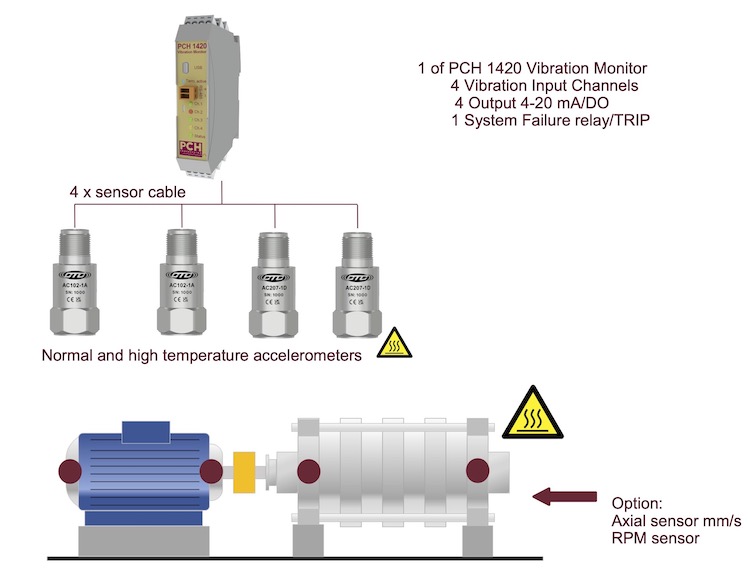Condition monitors for boiler feed pumps
Boiler feed pumps are crucial to the safe operation of boilers in power plants and other industries. To ensure their reliable operation and early detection of potential issues, condition monitoring is essential. At PCH Engineering, we base our monitoring recommendations for boiler feed pumps on our extensive experience providing monitoring solutions for high-pressure feedwater pumps in various industries.
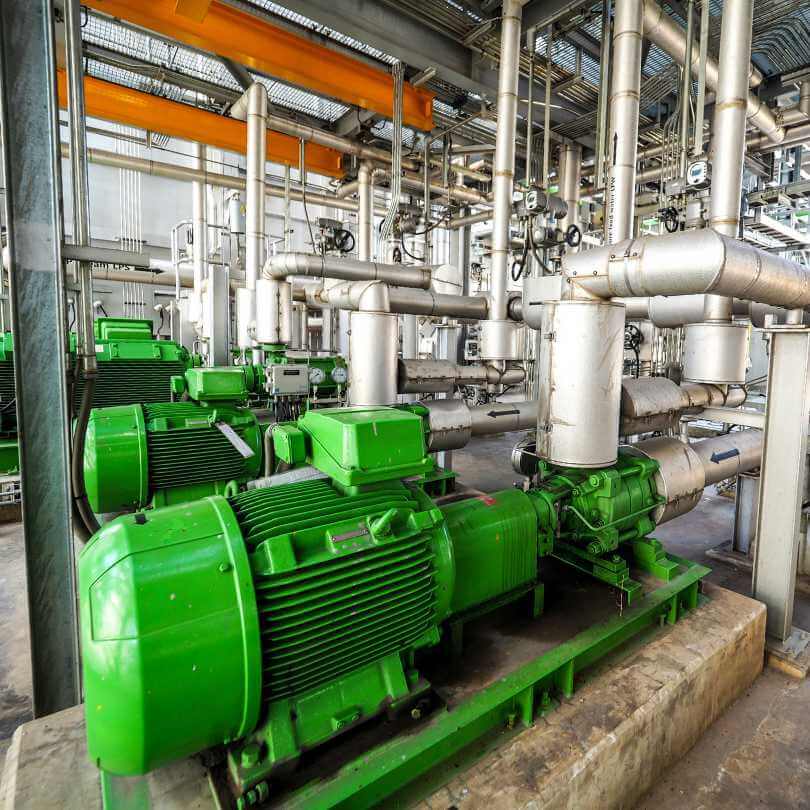
Applications
Our boiler feed pump condition monitoring solution is suitable for boiler feed pumps in various industries where steam generation or hot water production are crucial components of their operations, including:
- Power plants
- Water treatment plants
- The oil and gas industry
- The food and beverage industry
- The pharmaceutical and chemical industry
- … and other manufacturing industries.
Condition monitoring with PCH 1420 Vibration Monitor + PCH EtherBridge + high-temperature sensors
PCH 1420 Vibration monitor
The
PCH 1420 Vibration Monitor’s wide frequency range and high-resolution data acquisition ensure precise monitoring and detection of potential issues.
Combined with heat-resistant vibration sensors, the monitor accurately measures vibration frequencies in boiler feed pumps, providing early warning of pump cavitation, imbalance and misalignment.
Vibration data can be sent to your local PLC or SCADA system and form part of the overall condition monitoring program.

Features of the PCH 1420 Vibration Monitor
- 4 vibration input channels
- 1 tacho input channel PNP/NPN/AC
- 4 configurable outputs: relay, 0/4-20 mA, or 0/2-10 V
- Redundant SIL 2 safety relay
- User-defined bandpass filters from 0.7 Hz up to 11,500 Hz
- Bearing fault detectors: Envelope, Crest and Kurtosis
- Adjustable alarm levels and delay times
- Time waveform recordings of vibration sequences from four channels simultaneously
- Offline FFT analysis
Online data access and IoT compatibility: PCH EtherBridge communication module
Combine the PCH EtherBridge with the PCH 1420 Vibration Monitor and get online access to vibration data in real time. The PCH EtherBridge enables vibration data storage in a cloud database or on a local server of your choice. You or your service provider can analyse the condition of the boiler feed pump remotely and schedule maintenance when needed.
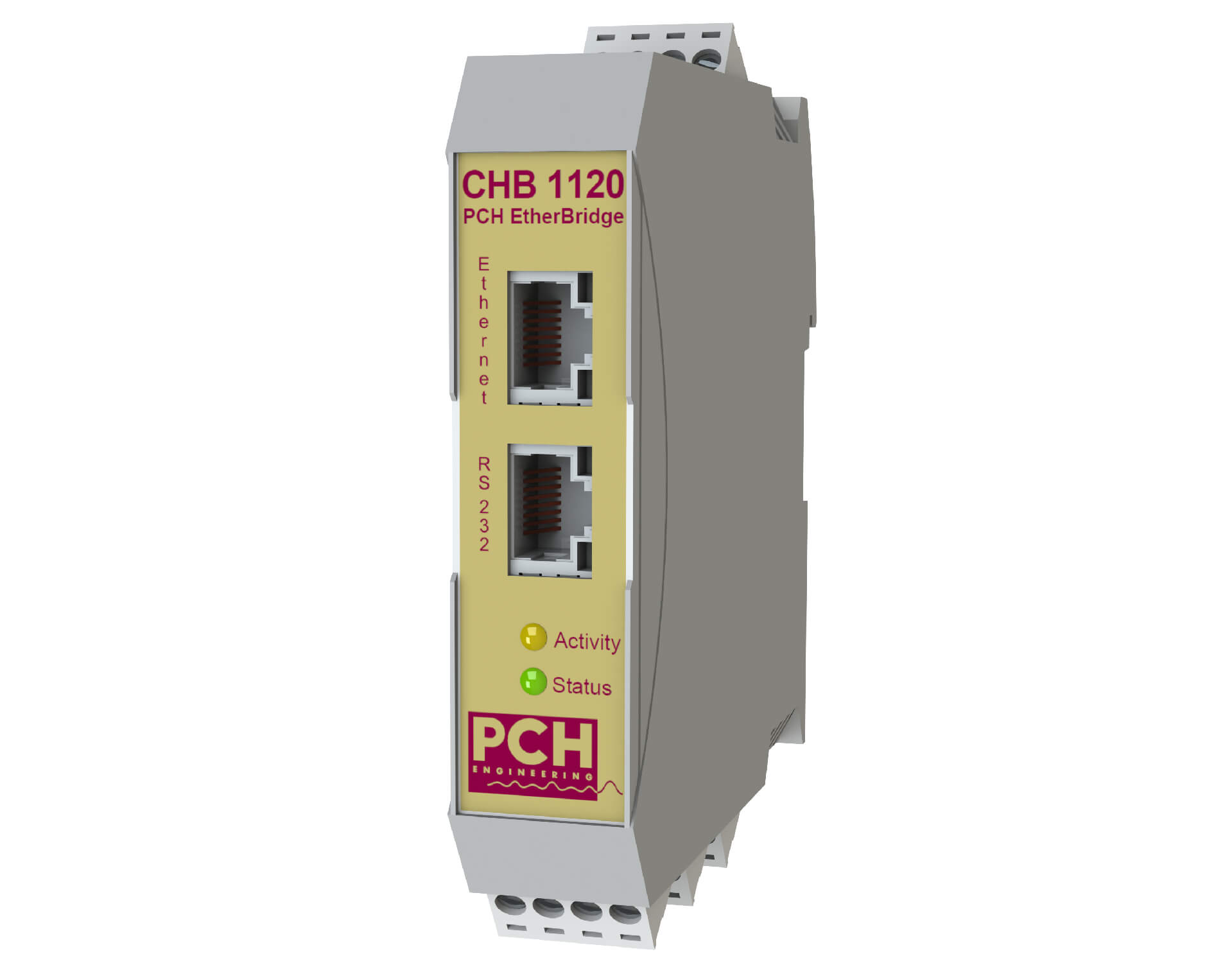 Features of the PCH EtherBridge
Features of the PCH EtherBridge
- 1 alarm relay and 1 digital input relay
- Communication hardware: RS 485, RS 485/232, RJ45 LAN connector for TCP
- Communication protocols: Modbus TCP, Modbus RTU, OPC UA
- Data storage: PCH Cloud, IIoT Rest, mini SD-card (optional)
Why monitor vibrations in boiler feed pumps?
Boiler feed pumps provide a continuous and controlled supply of water to boilers or heating systems and help maintain the optimal functioning of the boiler system, enabling efficient steam or hot water generation. Faults in the boiler feed pump (also known as a bfp, feedwater pump, high-pressure pump, multi-stage high pressure boiler feed water pump, or hot water circulation pump) cause downtime and excessive wear on the costly boiler over time or even lead to catastrophic boiler failure. In other words, you could be forced to replace the boiler before its time.
Excessive vibration or noise in a boiler feed pump may be signs of emerging faults or impending failure. By monitoring the vibration frequency of the pump and its electrical motor, you get early warning of problems such as:
- pump cavitation
- bearing wear and bearing failure
- coupling imbalance and coupling failure
- shaft misalignment and shaft failure
- impeller imbalance and impeller failure.
This makes boiler feed pump vibration monitoring crucial to maintaining system reliability, optimizing energy usage, and ensuring smooth operation in power plants, industrial facilities, and other industries.
Manual or permanent monitoring?
However, regular manual vibration monitoring is not practical, as the hot feedwater heats up the pump housing.
As a result, most feedwater pumps are enclosed in a protective cover to prevent operator injuries.
Online condition monitoring with permanently mounted vibration sensors allows you to monitor the condition of your boiler feed pumps at all times and detect emerging problems before they cause unscheduled downtime or catastrophic failure of the machine.
 Improve your OEM service offer
Improve your OEM service offer
As an OEM or boiler feed pump service provider, remote access to vibration data in real time means you can offer a better service to your customers. You can analyse trend data of each boiler pump and diagnose problems remotely.
This means that your customer’s problem can be solved quicker, sometimes without the need for on-site assistance.
Learn how to avoid common boiler feed pump problems with condition monitoring:
Contact our
sales consultants
How to monitor the condition of boiler feed pumps
Determine a vibration baseline
To establish a comprehensive vibration monitoring program for your boiler feed pumps, first determine a vibration baseline for each individual pump.
Collect multiple data sets on all monitored feedwater pumps under normal operating conditions. You need baseline vibration data to properly evaluate the condition of each pump because similar machines operate at different vibration levels.
Select appropriate sensors
As the boiler feed pump can be very hot to the touch and is often enclosed in a protective cover, making manual checks impossible, we recommend you choose permanently mounted, heat-resistant accelerometers.
At PCH Engineering, we provide you with a full monitoring solution, including permanent sensors suitable for hot environments.
Ensure ISO 20816-compliant sensor placement
Sensors should be placed on both the pump and the electric engine.
To comply with ISO 20816, two sensors should be placed on the bearing housing of the pump and two on the electric motor for radial and horizontal measurements.
These four sensors monitor bearing wear, cavitation and imbalance as well as common electrical motor problems.
A third, axial sensor can be added to either the pump or the motor to detect early signs of misalignment and prevent coupling failure.
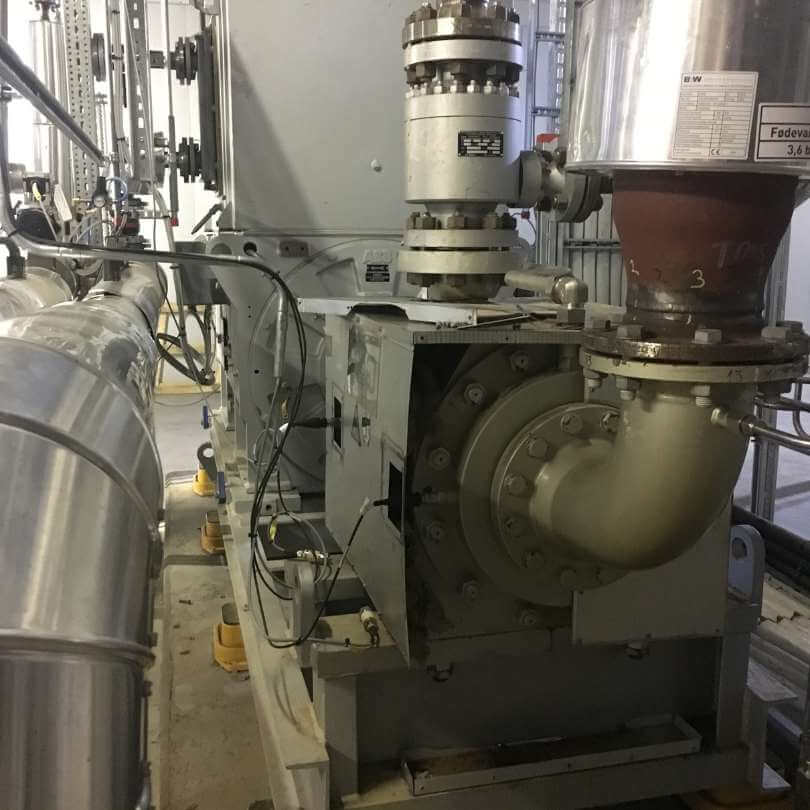
Define alarm thresholds
We recommend you refer to the boiler pump manufacturer’s guidelines for vibration limits and consult a vibration specialist if in doubt. Also see the ISO 20816 series for the general requirements for evaluating the vibration of boiler feed pumps.
Implement regular data analysis or consult a service provider
By analyzing the collected data, you can identify abnormal patterns, trends, or deviations from established baselines. Interpretation of vibration data helps in understanding pump health, identifying potential faults, and scheduling condition-based maintenance to minimize boiler downtime.



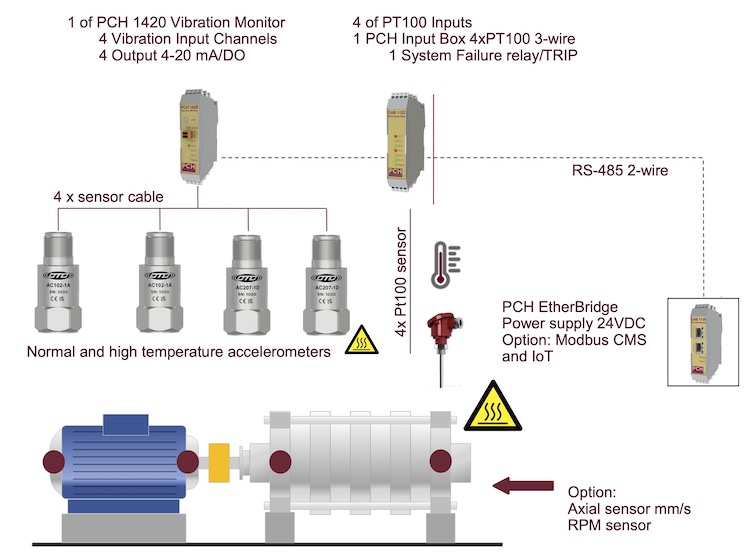

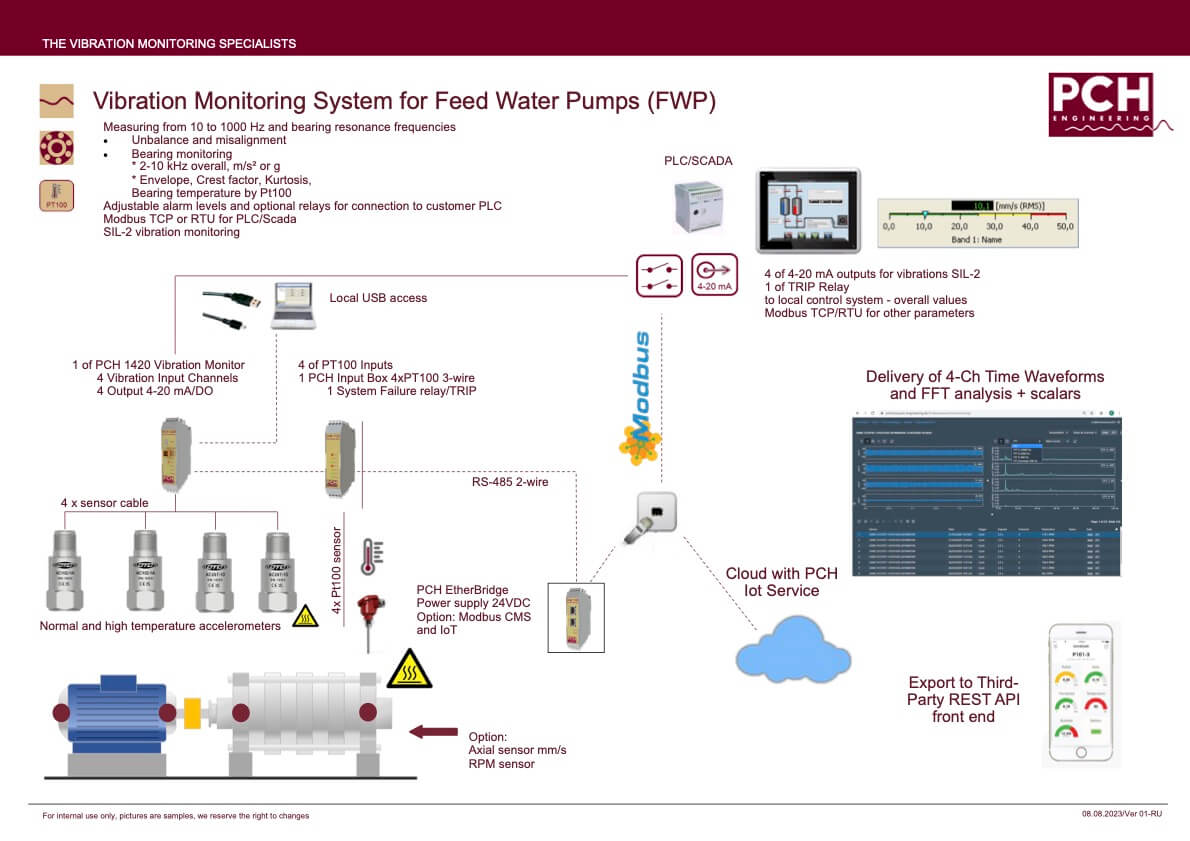

 Features of the PCH EtherBridge
Features of the PCH EtherBridge
